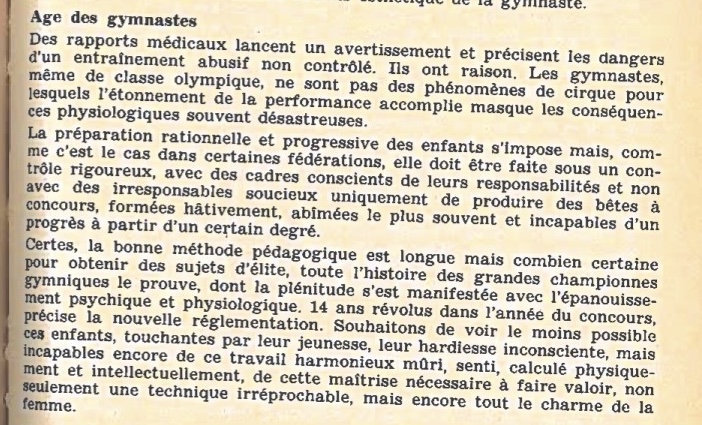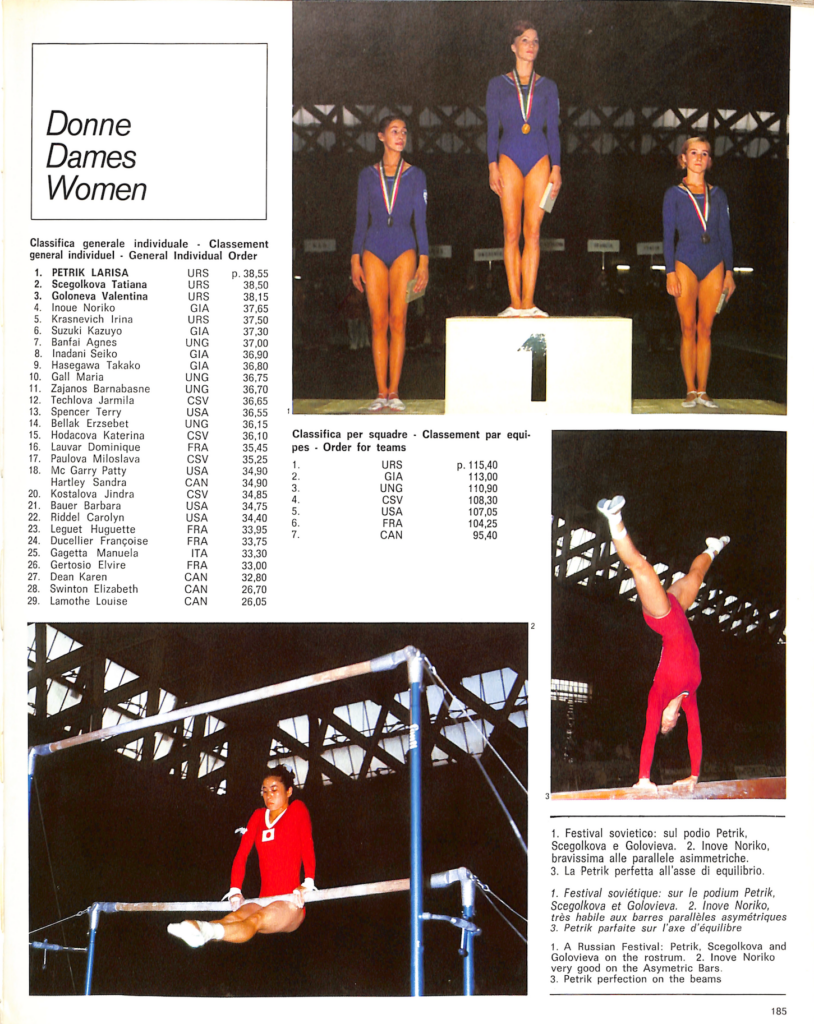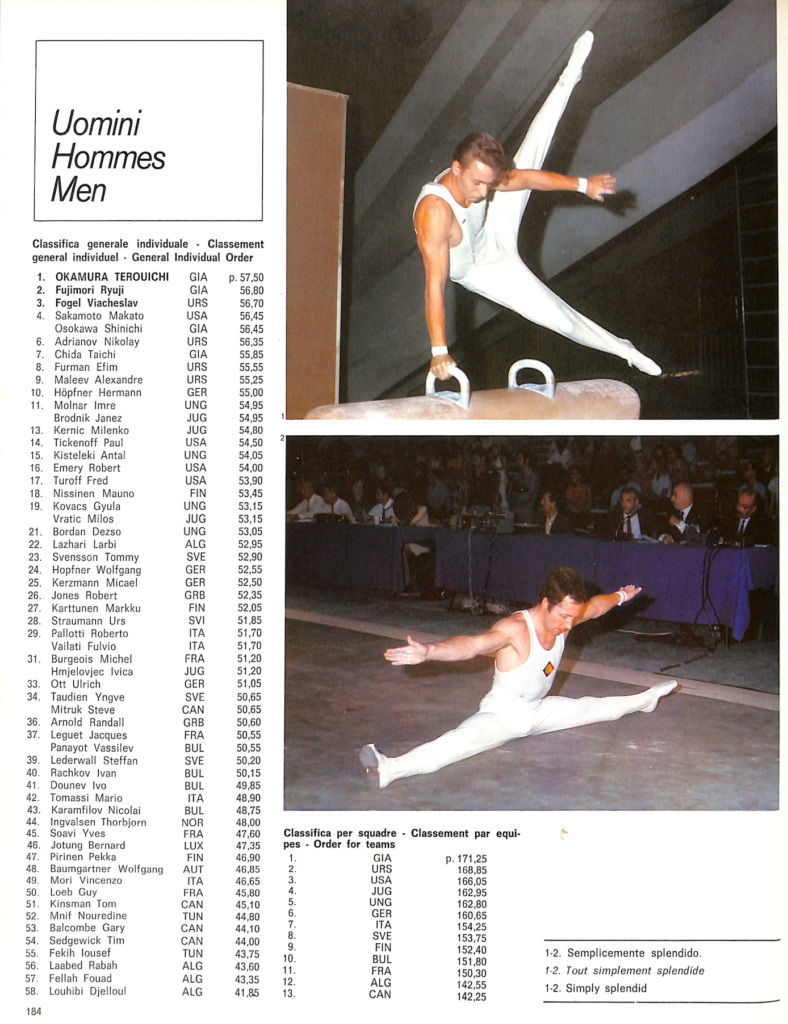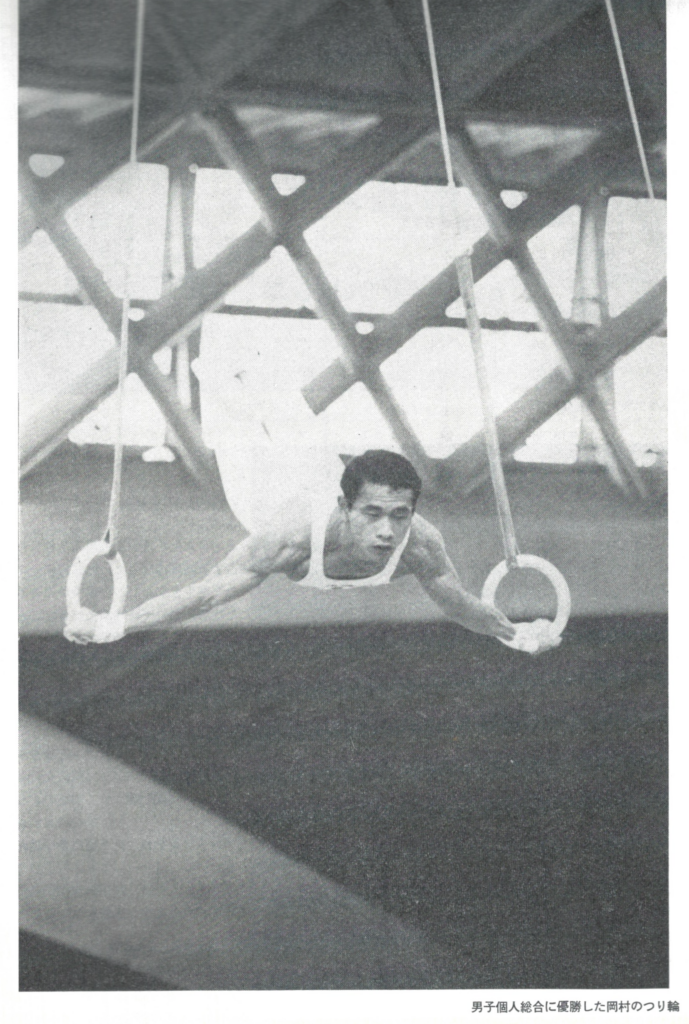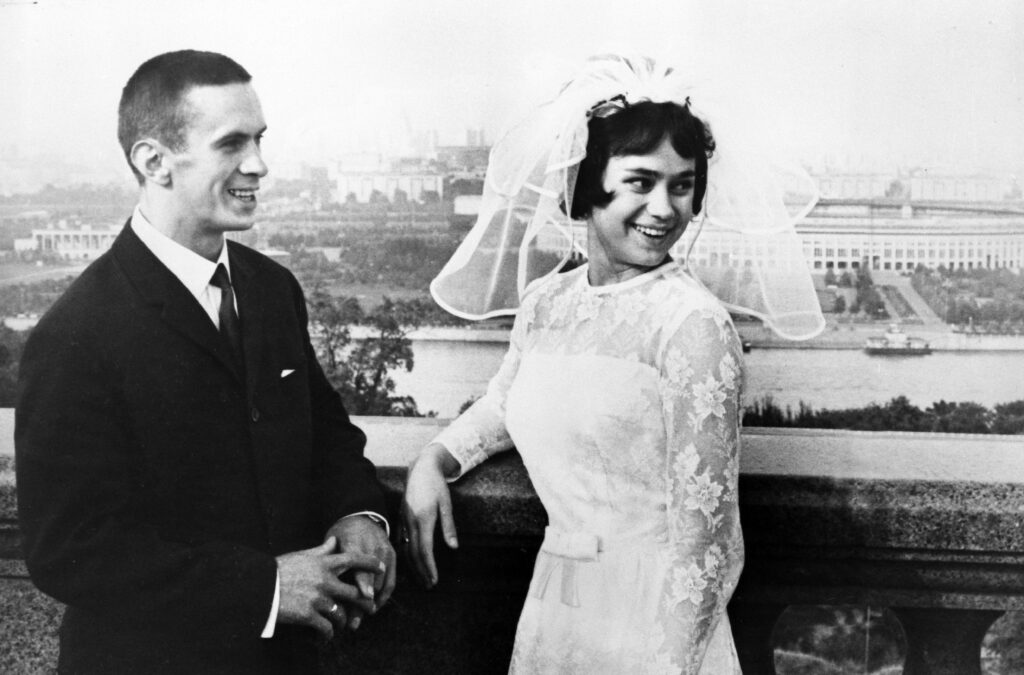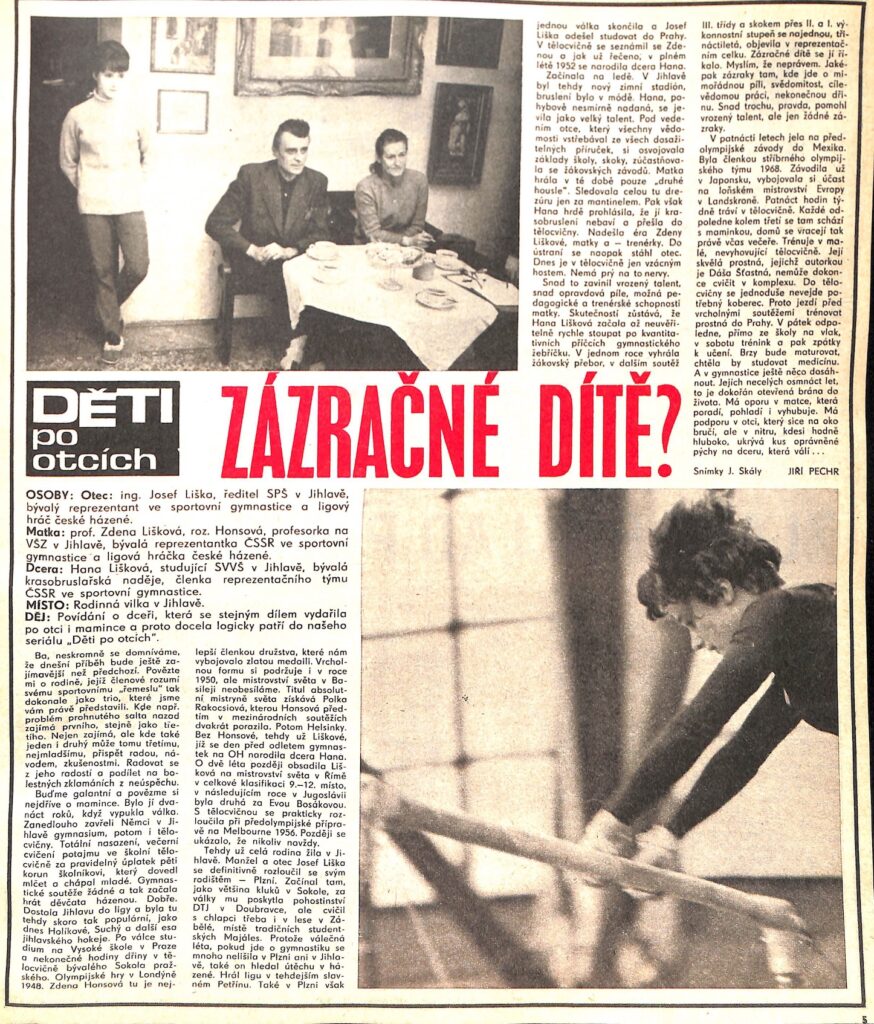In 1970, the Women’s Technical Committee set the competitive age limit at 14. One year later, they issued an explanation of sorts. It included a warning to members, recognizing that abusive methods were leaving child gymnasts damaged. By setting the age limit at 14, their hope was to see more “mature work” that displayed a “woman’s charm.”
Here’s what was recorded in the 1971 FIG bulletins about the question of age in women’s artistic gymnastics.
